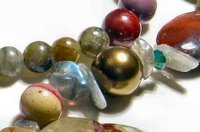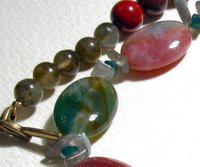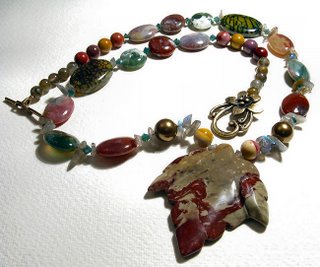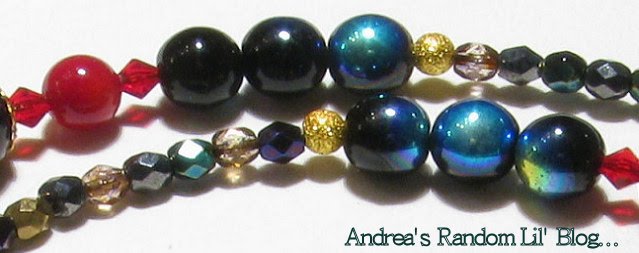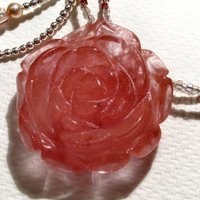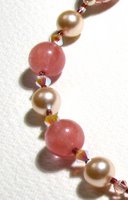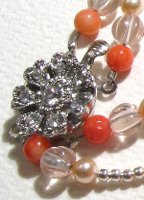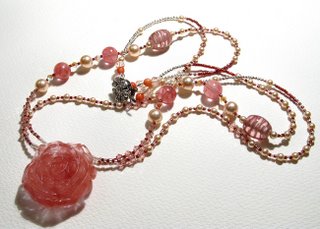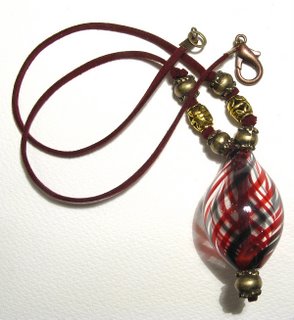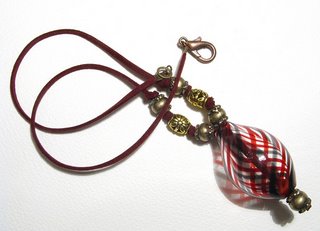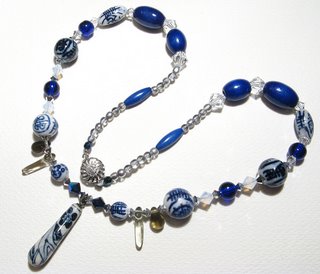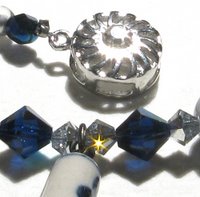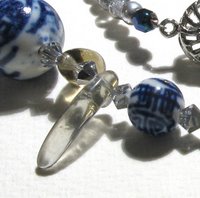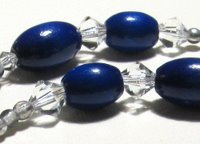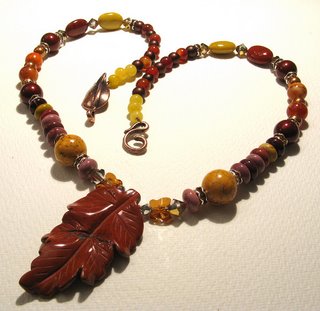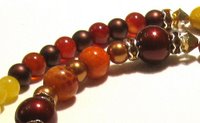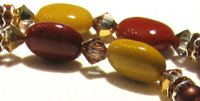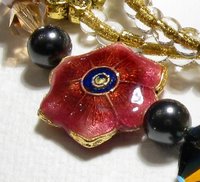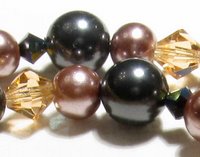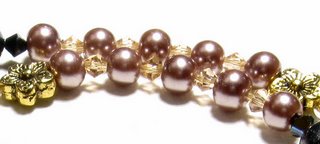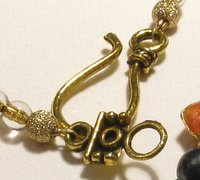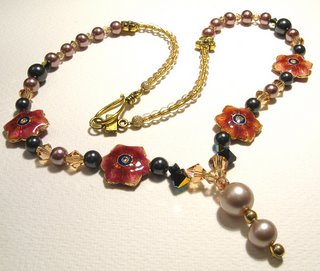Some weeks ago, I saw some really lovely
lampwork beads and bought them on eBay. I received six beads in the lot. I love their colour and the patterns: grapes and wine leaves. So pretty and different. I am not sure if they are Chinese, or American, or where they were made. I think they are gorgeous and original, and that should be enough. Yesterday, I made a necklace with them and called it
Vendemmia, which is Italian for "harvest", or wine grape harvest, more specifically.
Italian names once again, because when I think of grapes, that's what comes to my mind: Italy and (red) wines. My much loved
Sandrone Dolcetto d'Alba, which is virtually impossible to find in the shops, unfortunately. Not that I drink a lot or know anything about wines whatsoever, but I really love that one. And I will not even describe it here, because I would not know how to do it. Still, what can I say?
Hhhhmmm, I do love perfume and this Dolcetto is very fragrant. So, I love it... That's it. A very simplistic and a bit silly description, but the best I could come up with!
But it also reminds of my first trip to Italy, 20 years ago exactly, and a nice afternoon I spent in my friend
Gaetano's villa in the Emilia-Romagna, where he used to produce his own wine and make his own bread. All very lovely. I was with another friend at
the time, the old man
Oreste and his lovely German shepherd called
Coniglio (meaning "Rabbit", for the dog really had those funny long ears that made him look a bit like a rabbit, so cute). I don't know the whereabouts of both
Oreste and
Gaetano nowadays, we lost contact, and I knew that
Coniglio died some years after my visit. Still, these are nice memories, which I tried to retain somehow in that necklace, with its grapes and sunny afternoon shades. Like the sky on that day.

For Vendemmia I used:
- One vintage long teardrop Czech crystal pendant;
- Four
lampwork Grape beads in shades of lavender, cream, gold and green;
- Some few
Miyuki Delicas seed beads;
- Four iridescent Czech Fire faceted beads;
- Several
Swarovski bicones in different sizes, colours and effects;
- Several
Swarovski pearls in powder green and powder rose;
-
Swarovski round faceted small beads in a rose tint;
- Gold-lined small Czech clear beads;
- Gold-plated Tibetan spacers;
- One lovely
Swarovski gold-plated and crystal old-fashioned clasp.
Close-ups of
Vendemmia...

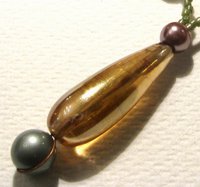 A close-up of one of the grape lampwork beads, which really looks like a little antique! They are almost 3 cm long and have a slight iridescence in the coating. The other picture shows the vintage Czech pendant, gold-foiled. and two of the Swarovski pearls. The pendant I recycled from one of my necklaces that I bought a bit before my trip to Italy, 21 years ago! But that's a coincidence and I only realise that now, while writing about it...
A close-up of one of the grape lampwork beads, which really looks like a little antique! They are almost 3 cm long and have a slight iridescence in the coating. The other picture shows the vintage Czech pendant, gold-foiled. and two of the Swarovski pearls. The pendant I recycled from one of my necklaces that I bought a bit before my trip to Italy, 21 years ago! But that's a coincidence and I only realise that now, while writing about it...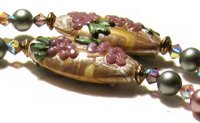
 Another close-up of the grape beads along with the Swarovski pearls, bicones in various colours and Tibetan spacers.
Another close-up of the grape beads along with the Swarovski pearls, bicones in various colours and Tibetan spacers.
 On the 1st shot, a detail of the Czech faceted beads, and Swarovski elements, along with the Miyuki green beads I used near the pendant. I have tried to use for this necklace, all shades that could match the colour of the grapes: lavender, rose, greens, creamy yellows. The 2nd picture shows the Swarovski elements in more detail.
On the 1st shot, a detail of the Czech faceted beads, and Swarovski elements, along with the Miyuki green beads I used near the pendant. I have tried to use for this necklace, all shades that could match the colour of the grapes: lavender, rose, greens, creamy yellows. The 2nd picture shows the Swarovski elements in more detail. This is the Swarovski clasp I have used. It is a lovely old-fashioned, clip-on style clasp, with lots of crystals embedded on its flower-shaped filigree frame. It's the 1st time I use this kind of clasp and I really like how it looks. It is a very safe one, however not recommendable for the ladies who are always in a hurry!
This is the Swarovski clasp I have used. It is a lovely old-fashioned, clip-on style clasp, with lots of crystals embedded on its flower-shaped filigree frame. It's the 1st time I use this kind of clasp and I really like how it looks. It is a very safe one, however not recommendable for the ladies who are always in a hurry!

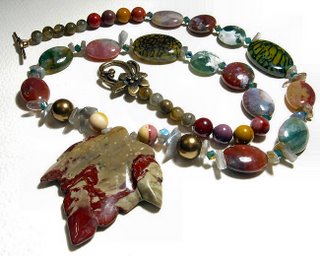 For this piece I have used:
For this piece I have used:
